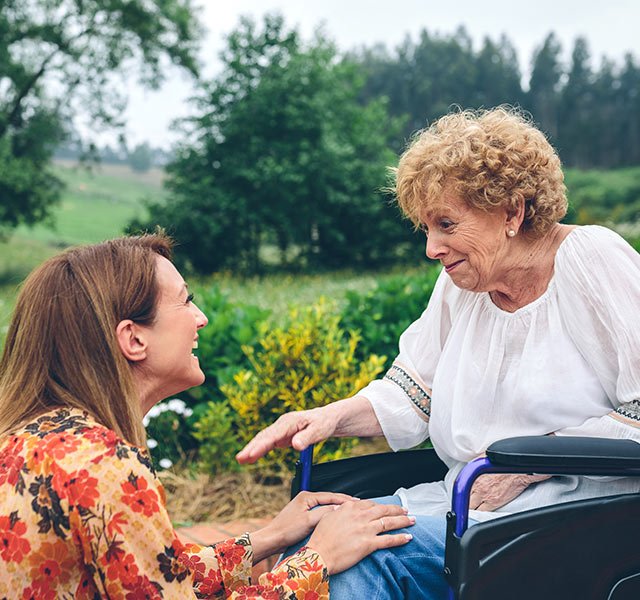For someone survives a stroke, recovery can often be a long journey requiring significant time relearning everyday tasks like walking and talking and taking care of oneself.
When someone you care about is faced with a serious health emergency, like a stroke, it’s natural to feel powerless. You may even wonder what you could possibly do to help.
Luckily, John Wald, M.D., a neurologist at Henry Ford Health, shares several ways you can support a friend following a stroke.
- Get the details. A stroke can affect people differently. Some people recover quickly, while others need more time in physical therapy or voice therapy. If they're willing to share, do you what you can to learn about your friend’s specific health issues and needs, so you know what kind of assistance might be welcome.
- Offer emotional support. Even a “mild” stroke is overwhelming. Listen and provide space for your friend to sort through fears, feelings and practical concerns. Don’t be discouraged if they aren’t ready to talk about everything right away.
- Encourage self-sufficiency whenever possible. It’s difficult to watch a friend struggle, but it may be a necessary part of them regaining important basic skills. Jumping in and doing everything can delay improvement when they don’t get needed practice.
- Help with rehabilitation. Daily exercises are important but can feel too overwhelming some days. Offer to do these activities with your friend. Give yourselves a reward when completed.
“Stroke rehabilitation can help regain independence and improve quality of life,” says Dr. Wald. “Researchers have found that people who participate in a focused stroke rehabilitation program do better overall than those who don't.” - Stay connected. You may not be able to visit as much as you want, but you can still let your loved one know you are thinking about them. Consider sending a card, leaving a little surprise on their front step or sending them a favorite treat. Even a call, email or video chat is a great way to brighten someone’s day!
- Be a cheerleader. Celebrate progress -- big and small -- with your friend. Create a progress journal of accomplishments. Revisit the journal often as a reminder of what has been achieved.
- Use your muscles. A stroke may mean your friend will need to use a walker or cane. Help rearrange furniture and remove rugs to create a clear a path and minimize trip hazard on the way to the bathroom, bedroom and kitchen. Remember to be patient. Your friend might not get around as well as they did before the stroke and just need time to get back to being more mobile.
- Learn the best way to communicate. Depending on the effects of the stroke, talking face to face might be better than talking on the phone. Or, maybe, an email or text message is easier to read than a handwritten letter. See what your friend is most comfortable with.
- Support caregivers too. Offer to take your friend for a drive, volunteer to do the dishes or laundry, and offer other help to lighten the load for the person(s) taking care of your friend during their recovery. Cards, words of praise and a supportive listening ear also help caregivers feel seen and appreciated.
To learn about stroke care and available treatment options, visit HenryFord.com/Stroke or call 1-800-436-7936 in southeast Michigan and Detroit or 1-888-862-DOCS in south central Michigan and Jackson.
Dr. John Wald is a neurologist who sees patients at Henry Ford Neurology in Jackson.



